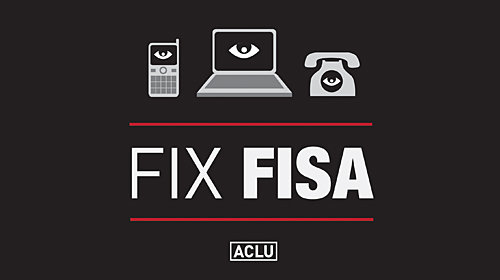
Yesterday, the House Judiciary Subcommittee on Crime, Terrorism and Homeland Security held a hearing on the government’s warrantless wiretapping program (watch here). The law authorizing the program, the FISA Amendments Act of 2008, expires at the end of this year.
Testifying at the hearing, ACLU Deputy Legal Director Jameel Jaffer spoke in detail about our concerns with the law and how it authorizes mass, suspicionless surveillance of international communications – even if one party is an American in the US. He also called on Congress to conduct public oversight of the program and to secure release of basic information about the law and its legal underpinnings. You can see the ACLU’s full written testimony here. The other witnesses were Marc Rotenberg, Director of the Electronic Privacy Information Center and Kenneth Wainstein, former Assistant Attorney General for National Security.
There’s good news and bad news from the hearing. The good news is that several members of the subcommittee were in attendance and asking probing questions. Chairman Jim Sensenbrenner (R-Wisc.) said that a classified briefing is in the works – we hope the members press the Obama administration for answers behind closed doors. The bad news is that several others were doing their best to argue for secret law and mass surveillance. The reauthorization fight in the coming months will be controversial, and it will certainly be an uphill battle.
The hearing comes just a week after the Supreme Court agreed to hear an ACLU case challenging the law. The ACLU represents a broad group of attorneys and human rights, labor, legal and media organizations whose work requires them to engage in sensitive telephone and email communications with people outside the U.S. They include colleagues, clients, sources, foreign officials and victims of human rights abuses. The plaintiffs include Amnesty International USA, Human Rights Watch, The Nation, the Service Employees International Union and the PEN American Center. The Justice Department claims they should not be able to sue without first showing they have actually been monitored under the program – but it also argues that the government should not be required to disclose if plaintiffs have been monitored.
Check back here for more information on FISA. The administration is pushing for a quick and clean reauthorization, and it’s possible that Congress votes on this issue this summer instead of waiting until the last minute as usual. We’ll need your help to tell Congress to #fixFISA.
Learn more about warrantless wiretapping: Sign up for breaking news alerts, follow us on Twitter, and like us on Facebook.

